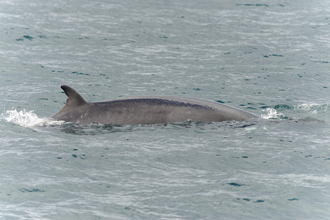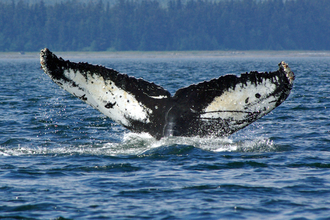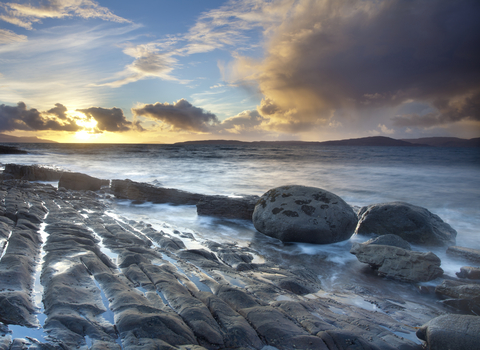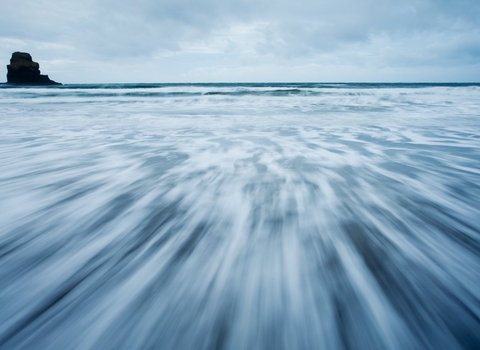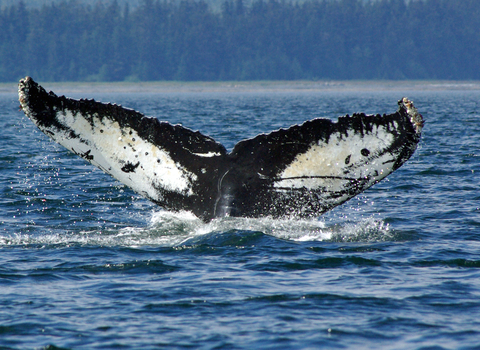
Humpback whale ©Gillian Day
Humpback whale
The humpback whale is making a comeback, with more and more individuals being seen in UK seas every year. They are well known for their acrobatic behaviour - so don't be surprised to see them breach clear of the water!
Scientific name
Megaptera novaeangliaeWhen to see
January to DecemberSpecies information
Category
Statistics
Length: Up to 18m Weight: up to 40 tons Lifespan: 80-90 yearsConservation status
Considered of Least Concern on the IUCN Red List of species and a Priority Species under the UK Post-2010 Biodiversity Framework.
Habitats
About
The humpback whale is a large baleen whale, reaching up to 18m long. They are found throughout the world's oceans and perform some of the longest migrations of any mammal. They feast on fish and krill in productive cooler waters and then travel to tropical seas to give birth. In UK seas, they are normally spotted alone or in pairs. Look out for the 5m long pectoral fins (front flippers) that give the humpback whale their scientific name: Megaptera novaeangliae - meaning Big-winged New-Englander!How to identify
Humpback whales are unmistakable, thanks to their unique knobbly head and the long wing-like front flippers that they often raise and slap on the surface. Their body is black or dark grey with a white underside. The first sign of a whale is often the blow as they exhale at the surface; in humpback whales the blow is bushy and around 3m high.Distribution
Sporadic sightings around much of the UK, more common off Shetland Isles and Hebrides but increasingly seen in Northern North Sea.Did you know?
Using the unique pattern of markings on the underside of its tail fluke, we know that a humpback whale seen feeding off the Shetland Isles has also been recorded in breeding grounds off Guadeloupe in the Caribbean!How people can help
Report your humpback whale sightings to your local Wildlife Trust. If you spot a humpback whale whilst at sea, maintain a distance of at least 100m. If the whale approaches you, maintain a constant speed and allow them to interact on their own terms and leave at will. If you find a stranded whale (dead or alive), please report it to the relevant authority.

